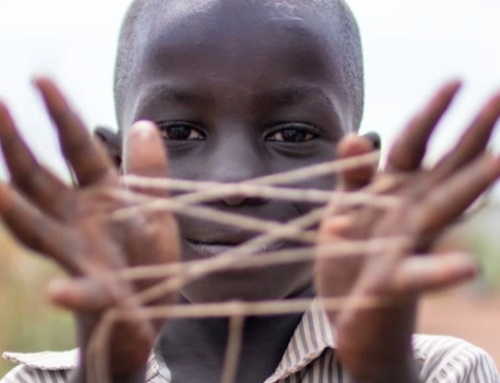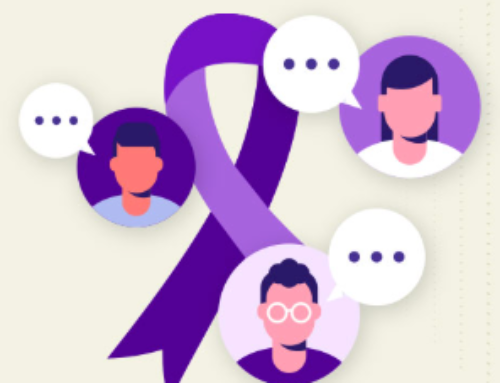Golden Lights at the 13th Asian & Oceanian Epilepsy Congress
The IBE Golden Light Awards are an opportunity to recognise and reward young people affected by epilepsy – either because they have epilepsy or have made a significant positive impact on the lives of others who have the condition. The aim is to show that people with epilepsy do not have to be defined by their epilepsy but who embrace the call of the International Bureau for Epilepsy to ‘bring epilepsy out of the shadows and into the light’.
These six worthy candidates, nominated by their chapters, will be presented with their awards during the Epilepsy & Society Symposium at Asian & Oceanian Epilepsy Congress in June. By attending the virtual symposium, you will have the opportunity to hear them recount their remarkable stories and see them receive their award.
The IBE Epilepsy & Society Symposium takes place on Sunday 13th June and you can find out more about the programme and how to register at https://www.epilepsycongress.org/aoec/ibe-day/.
 Chris Ang, Singapore
Chris Ang, Singapore
Chris is a young man with epilepsy who is an extremely dedicated volunteer supporting the cause of Epilepsy Care Group (ECG) Singapore through his active participation in its executive council, activities such as dragonboating, and as an outreach representative for ECG in the IBE Youth Team.
He holds a degree in Marketing and works as a financial adviser with an insurance firm. This provides him with the opportunity to meet people with pre-existing medical conditions and assist them in making better decisions when dealing with their finances. In addition, it allows him to speak with parents to let them know that it is important to ensure that their children are protected before they have any medical conditions.
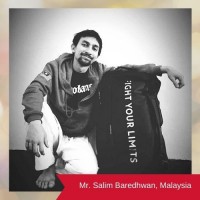 Salim Baredhwan, Malaysia
Salim Baredhwan, Malaysia
Losing both parents as a young boy and subject to deja-vu experiences which he now knows were seizures, growing up was not easy for Salim. Yet, despite the difficulties he faced, he was an excellent student at school and went on to graduate in Business at the Malaysian Science & Technology University. Salim was eventually diagnosed with epilepsy in 2010 following his first major generalised seizure and status epilepticus. He has been an active executive member of the Malaysian Society of Epilepsy since 2017, contributing to many public awareness programmes organised by the society. He has appeared in national TV and radio to talk about his experience and challenges of living with epilepsy. He hopes, one day, to become an international epilepsy advocate and inspire others. A keen sportsman, winning many medals in Karate.
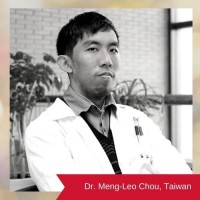 Meng-Leo Chou, Taiwan
Meng-Leo Chou, Taiwan
Meng-Leo has struggled through epilepsy diagnosis, drug dose adjustment and the recurrence of seizures after a seizure-free period in his early epilepsy journey. However, despite these difficulties, he has achieved great academic success and has proven himself to be a person with a positive attitude and indomitable spirit toward epilepsy.
Meng-Leo plays a dual identity as a person with epilepsy and a physician training to be a neurologist. Despite a culture of social stigma around epilepsy in Taiwan, he gladly accepted the invitation to lead a six-member group of young adults with epilepsy as speakers at a national conference as part of the Taiwan State Party’s implementation of the UN Convention on the Rights of Persons with Disabilities, demonstrating excellent leadership skills.
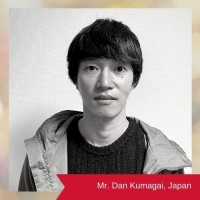 Dan Kumajai, Japan
Dan Kumajai, Japan
Dan was a medical student when he suffered a tonic clonic seizure and his world was thrown into turmoil. Prevented from many student life social activities resulted in depression and he struggled to remain focussed on his studies. Yet, despite these challenges, he received his medical degree and, encouraged by colleagues and teachers, he is now studying to become a plastic surgeon
He joined Japan Epilepsy Association and contributes greatly to its work, first by providing a column in the association’s magazine under a pen name and, more recently, in a programme produced by the Japan national broadcasting company in which he spoke freely about his epilepsy, giving hope to hundreds of others. How he lives his life is an example of how to meet the challenges of epilepsy while not allowing them to prevent anyone achieving their goals.
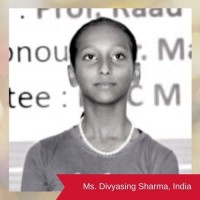 Divyasiny Sharma, India
Divyasiny Sharma, India
Divyasiny is a young woman with epilepsy who has taken it as a challenge to spread awareness about the condition. She has been providing yoga therapy as an adjunct therapy to more than 500 epilepsy patients in Mumbai and is involved in a large double blinded randomized control trial to provide evidence as to whether there is a beneficial effect of yoga therapy in controlling seizures in epilepsy. She has presented as a speaker at a number of conferences in India and has also used her yoga classes to raise awareness about epilepsy.
As a 17-year old student, her ambition is to become a lawyer. As a qualified lawyer, she believes that she will be able to fight for the legal rights of people with epilepsy in India in the areas of education, employment and social life.
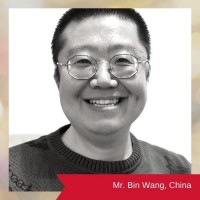 Bin Wang, China
Bin Wang, China
Bin Wang has been a shining light among people with epilepsy. He graduated with a master’s degree in Translation and Interpretation and worked as assistant to the CEO of a major company before having his first seizure – which was attributed to long working hours. With his professional expertise as a translator, he has devoted himself to the China Association Against Epilepsy and the local community. He has helped translate the personal stories of people with epilepsy from around the world, and shared his own story at meetings organised by CAAE to show that people with epilepsy are no different to others, encouraging them to develop their skills for a better quality of life. He has built a community of people interested in learning English. His positive attitude is testament to his aim to bring epilepsy out of the shadows.


